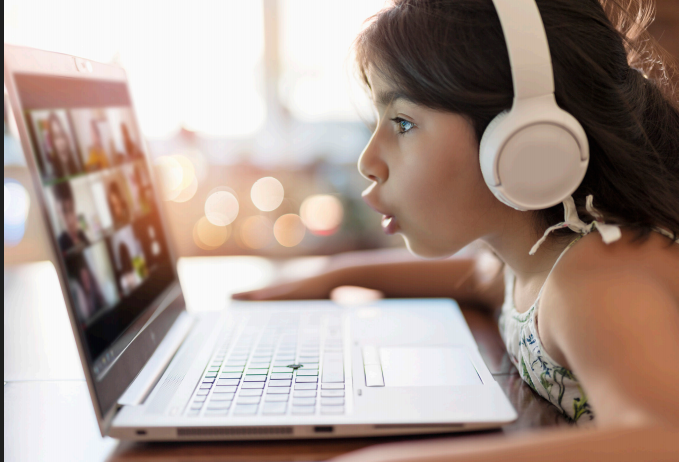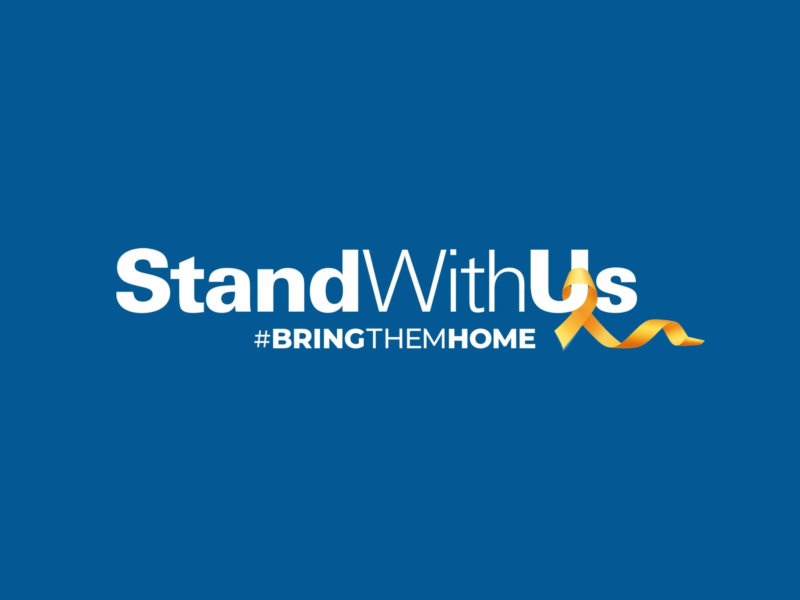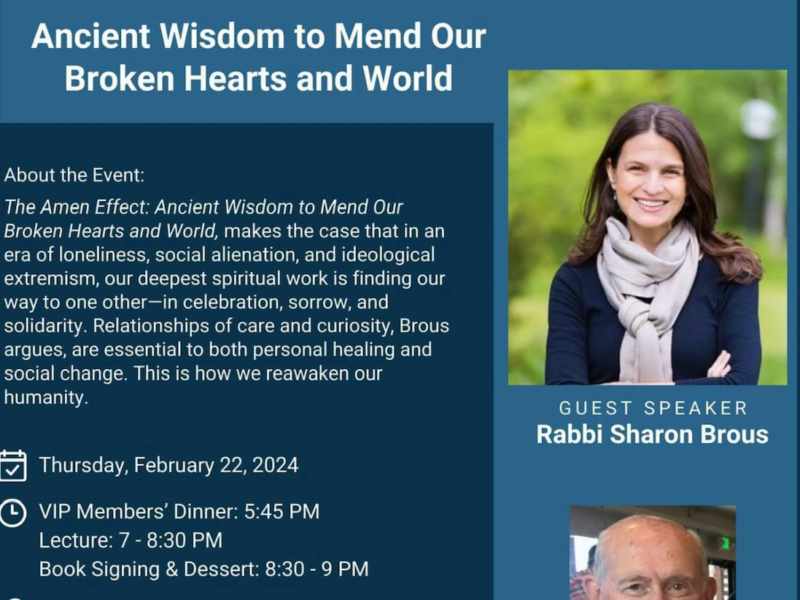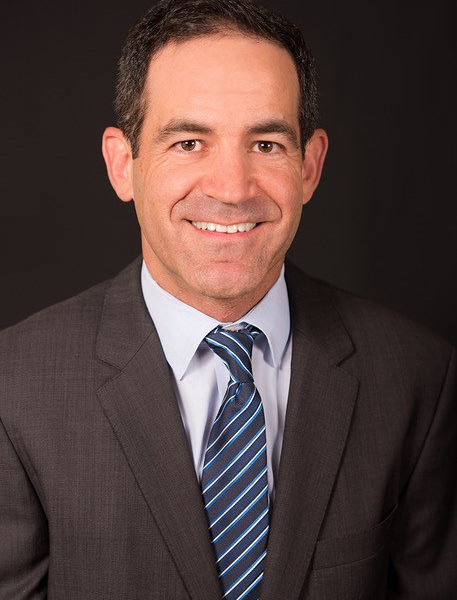There’s no doubt that next to frontline workers, teachers have had the most challenging year of their professional lives, having to shift from in-person to online learning in the blink of an eye. Still, teachers being the optimists they often are, rolled up their sleeves and soldiered on.
We posed some questions to Valley teachers about the year 2020 and their plans for 2021.
Pardes Jewish Day School, located in Scottsdale, offers a kindergarten through eighth grade education in a community infused with Jewish values. pardesschool.org.
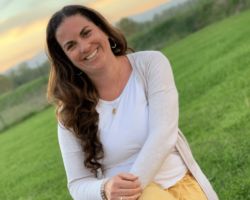 Sara Abrams has been an educator for 18 years. She currently teaches seventh grade:
Sara Abrams has been an educator for 18 years. She currently teaches seventh grade:
How have you been teaching lately? In-person, online or a hybrid schedule?
In-person, while also managing remote learners on our live platform.
What were some of your biggest challenges teaching in 2020? What have you found to be some of your students’ biggest challenges?
One of my biggest challenges while teaching in 2020 has been management because not only am I teaching in person, but I am also simultaneously managing the online component for my students who are learning remotely. I set out to create an environment where students feel included, whether they are in-person or Zooming into the classroom from home.
Facilitating classroom discussions that include all students has been a challenge this year in particular, which might also be one of the biggest challenges for my students. This year, they have taken on more ownership of their learning by managing their time and engaging in the curriculum from wherever they are while balancing it all. It’s quite a feat.
buy alesse online
What are some positive takeaways from 2020 that you may utilize moving forward?
The most positive takeaway is our resiliency – we are stronger than we think – and our ability to be innovative – we are more creative than ever before.
Children are very resilient, but do you have concerns about the long-term impact of this past year on your students? What are some positive effects you have noticed?
I don’t have any concerns; on the contrary, I believe that students are seeing how important it is to take ownership of their learning and realizing the impact of their voice and choice. Our school has taken hybrid learning and made it the best possible. My students are not behind in any area academically. They have proven to be resilient in the face of challenges, which is a skill they will need as they move forward in this life.
What are you doing to prepare for 2021?
I try to remain focused on the present and approach every task with a growth mindset. If anything, teaching in 2020 has taught me that we need to trust ourselves and find a way through.
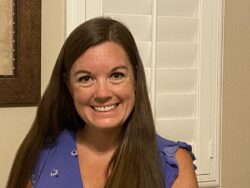 Allison Clark has been an educator for 13 years. She currently teaches middle school math:
Allison Clark has been an educator for 13 years. She currently teaches middle school math:
How have you been teaching lately? In-person, online or a hybrid schedule?
We are in-person with a handful of students online.
What were some of your biggest challenges teaching in 2020? What have you found to be some of your students’ biggest challenges?
The biggest challenge I found last school year was trying to keep the students engaged while they were at home from March through May for remote learning. The distractions from all of the comforts of home caused me to rethink how I delivered my lessons. This year my biggest challenge is managing the two platforms – balancing my time between helping the in-person students and the online students. Ensuring that I can address all of the questions that any of my students might have.
What are some positive takeaways from 2020 that you may utilize moving forward?
Before going remote, I utilized a flipped classroom model. Having that in my “educational tool-belt” was a game-changer. In 2020 I was introduced to an app called “Explain Everything.” I used this program to create videos for my students to use in conjunction with remote or in-person learning. buy alphagan online
Children are very resilient, but do you have concerns about the long-term impact of this past year on your students? What are some positive effects you have noticed?
I do not have any concerns about the long-term impact from the past year. The students at my school were provided a wonderful education, even while remote – a few of our students are still remote. The students in school are getting the education and the benefits of socializing with their friends. I think children will be flexible with any challenge that they are presented with in the future.
What are you doing to prepare for 2021?
I attend a lot of professional development opportunities. I utilize the people I follow on Twitter to gather ideas that will help me in my classroom. I talk to my colleagues and see what wonderful ideas they have. I also take advice from my students. I ask them about things that have worked in class, and things they think didn’t work. As a teacher, I feel like we are always learning and trying to better ourselves. COVID-19 happening isn’t going to change that about teachers; it might just make that need for growing even more prevalent.
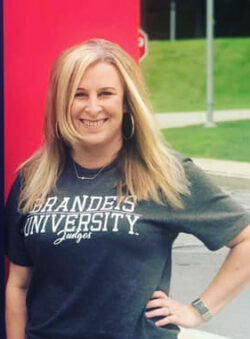 Nicole Stokes has been an educator for more than 22 years. She currently teaches third grade:
Nicole Stokes has been an educator for more than 22 years. She currently teaches third grade:
How have you been teaching lately? In-person, online or a hybrid schedule?
I started the school year teaching online, and then since September, we have been in person. After Thanksgiving and Winter Break, we will be back online for a week using our remote platforms with our students.
What were some of your biggest challenges teaching in 2020? What have you found to be some of your students’ biggest challenges?
Some of the biggest challenges teaching this year has been to find new interactive ways for my students to work together in their subject areas and creative ways for them to work collaboratively. Also, finding online tools and platforms for our students to use at an elementary level that are supportive and hands-on.
Some of their biggest challenges have been developing their social-emotional skills both online and in the classroom, even though their large and small group experiences look different this year. Also, because all of the students were away from campus and using remote learning last spring for so long, I am spending more time focusing on relationships and problem-solving skills.
What are some positive takeaways from 2020 that you may utilize moving forward?
One huge positive has been the flexibility that students have had to respond to all of this. My third graders now move from in-person to remote learning with little to no support. They can maneuver and manipulate the multiple platforms we are using for learning on such an independent level; we have never seen that before.
Also, because my students are in a small pod, they have opened themselves up to their pod being an extension of their school family. Most days, they are with me for five and six hours straight – learning, eating lunch, having recess, working in small groups, doing projects – and they have learned to rely on one another in new and different ways. They’ve been forced to problem-solve with peers outside of their friend circles, engage in small groups with others that possess strengths and weaknesses that are different from their own, and utilize critical thinking skills in new platforms.
Children are very resilient, but do you have concerns about the long-term impact of this past year on your students? What are some positive effects you have noticed?
I worry about the additional stress and anxiety that children, in general, are having to face since this pandemic began. For some students, the additional stress at home has forced them to worry about things they may not have previously been aware of. I think more than ever, the focus on social-emotional learning is imperative for our students moving forward.
One huge positive I have noticed is my students’ abilities to open up and be vulnerable within our classroom pod. We spend a great amount of time at Pardes focusing on social-emotional learning as well as our academics through our Responsive Classroom model. The students have been more open to sharing how they are feeling, things they may be worried about, and being more reflective about life in general than they ever were at this age before. buy amaryl online
What are you doing to prepare for 2021?
I am continuing to push myself to find new and interactive ways to engage my students for 2021. After January, third graders have the most growth, so I am exploring new platforms to use in our learning structure. Finding ways for the students to apply their problem-solving and critical-thinking skills, and even more ways to connect and engage with one another. Strengthening their relationships plays an enormous role in our learning every day.
Temple Kol Ami Early Childhood Center, located in Scottsdale, is a developmental preschool where infants through Pre-Kindergarten learn to grow and develop a positive self-image and strong sense of Jewish identity. templekolami.org/early-childhood-center
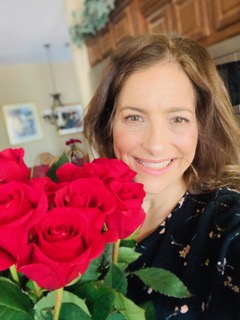 Sharon Levy has been teaching for 15 years. She currently teaches Pre-K.
Sharon Levy has been teaching for 15 years. She currently teaches Pre-K.
How have you been teaching lately? In-person, online or a hybrid schedule?
This year has been in person until this past week when the school needed to temporarily switch to online teaching.
What were some of your biggest challenges teaching in 2020? What have you found to be some of your students’ biggest challenges?
As a teacher, wearing a mask all day has been uncomfortable and has hidden my facial expressions from the children. They can’t see my smiles or laughs. It is also challenging to read books during circle time and teach the letter of the week or the weekly theme when the mask muffles my voice! Another challenge has been modifying the lesson plan to move away from more group, sensory-based activities such as; cooking, playing with play dough, having a dress-up center, and playing with cloth dolls for imaginative play. The students have had to become more aware of their space around them and respect other classmates’ space to not spread their germs. They have become expert hand washers! They have also had to become flexible with sudden changes in their routine from in-school to learning online at home.
What are some positive takeaways from 2020 that you may utilize moving forward?
To be grateful for all that I have. I am grateful to see the smiling, loving faces of my students each day, and if they are happy, then so am I! Flexibility is a big takeaway from 2020 in all areas of teaching. Also, having good communication with your student’s parents is of great benefit to a successful year. I wouldn’t have succeeded with either way of teaching, online or in-person, without their support.
Children are very resilient, but do you have concerns about the long-term impact of this past year on your students? What are some positive effects you have noticed?
I don’t have any concerns about the long-term impact for my Pre-K students. A positive effect I’ve noticed is that they have been very understanding and flexible regarding the change in their school routines. Before, they went to specials at school – music with the cantor, story time with the rabbi – now they see them virtually but still manage to connect with them and have fun! They have also accepted our new drop-off and pick-up procedures in the parking lot like champs!
What are you doing to prepare for 2021?
I’ve learned to take everything as it comes with positivity and will carry that into 2021.
 Daliah Meirovits has been an early childhood educator for the past 23 years. She has taught the three’s class for the past 13 years.
Daliah Meirovits has been an early childhood educator for the past 23 years. She has taught the three’s class for the past 13 years.
How have you been teaching lately? In-person, online or a hybrid schedule?
I have been fortunate to teach in person most of this year and had online teaching for just a few months due to the pandemic.
What were some of your biggest challenges teaching in 2020? What have you found to be some of your students’ biggest challenges?
Some of my biggest challenges teaching in 2020 was learning how to teach on Zoom for the first time and how to keep our students excited about learning. I researched online books and activities for my Zoom class that were both educational and interesting to keep them engaged. Sometimes my parents were not able to join my Zoom class because they were working. There were also some students that were not comfortable being on Zoom.
What are some positive takeaways from 2020 that you may utilize moving forward?
Some positive takeaways from 2020 that I may utilize moving forward are continuing my research for new online techniques and finding fun educational activities to keep my students interested in learning.
Children are very resilient, but do you have concerns about the long-term impact of this past year on your students? What are some positive effects you have noticed?
I do think that children are resilient and personally do not have any concerns about the long-term impact of this past year on my students. Some positive effects I have noticed are children really appreciate being in the classroom with their teachers and classmates. They miss in-person learning and interacting with each other.
What are you doing to prepare for 2021?
To better prepare for 2021, I will reach out to my colleagues and get some fresh ideas for online teaching. My lesson plans for this year will be geared towards in-person, online or even hybrid learning if necessary. I am so grateful to be an educator in this amazing Jewish preschool even in these challenging times and look forward to many more wonderful years.
The Early Childhood Learning Center at the EVJCC in Chandler provides high-quality education and care in a safe, nurturing environment for children ages 6 weeks old through 5 years.
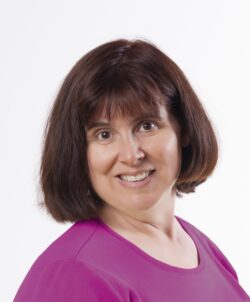 Pamela Morris has been director of the East Valley JCC since 1994.
Pamela Morris has been director of the East Valley JCC since 1994.
How have you been teaching lately? In-person, online or a hybrid schedule?
We are in person with a short break in March through May for online education. Our staff is here at 7 am and doesn’t leave until 6 pm when the last child leaves for the day. Our parents rely on us for high-quality care, and online doesn’t work for them or our young children.
What were some of your biggest challenges teaching in 2020? What have you found to be some of your students’ biggest challenges?
Trying to offer online options for families during April and May were very challenging, especially for staff with children of their own at home. Now that we have returned to in-person learning and care, the challenges include staff needing to wear face masks all day long; our three’s and pre-K needing to wear their masks for a good portion of the day and not being able to socialize with other learning pods. Each age group is relegated to their learning pod with their specific staff members, which means no fraternizing between the groups. We are a very social bunch, and this has been a very big struggle.
What are some positive takeaways from 2020 that you may utilize moving forward?
Because of COVID-19, our conferences have moved to virtual, which has been very helpful. It makes it so much easier for the parents to attend and not take off very much time from work. It also means the staff can do them during nap times and not give up their evenings.
Our staff is resilient. They are becoming closer with their peers within their learning pods, which has enhanced these relationships.
Children are very resilient, but do you have concerns about the long-term impact of this past year on your students? What are some positive effects you have noticed?
Young children are very resilient. I think that for now, they are handling this new normal fairly well. I feel the older children might have lasting repercussions since they remember what it was like before, and no one knows when this all will end.
What are you doing to prepare for 2021?
We are gearing up for registration for the new year. We will begin a little later in the spring than in previous years, but we are moving forward with the programs we offer, and continuing with our high level of care, education and commitment to our families and our children!


